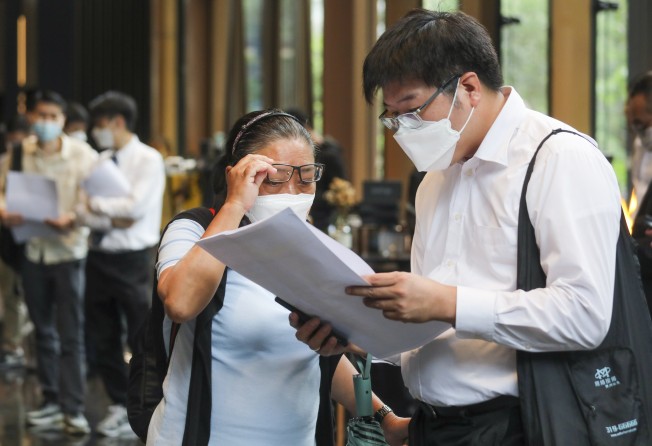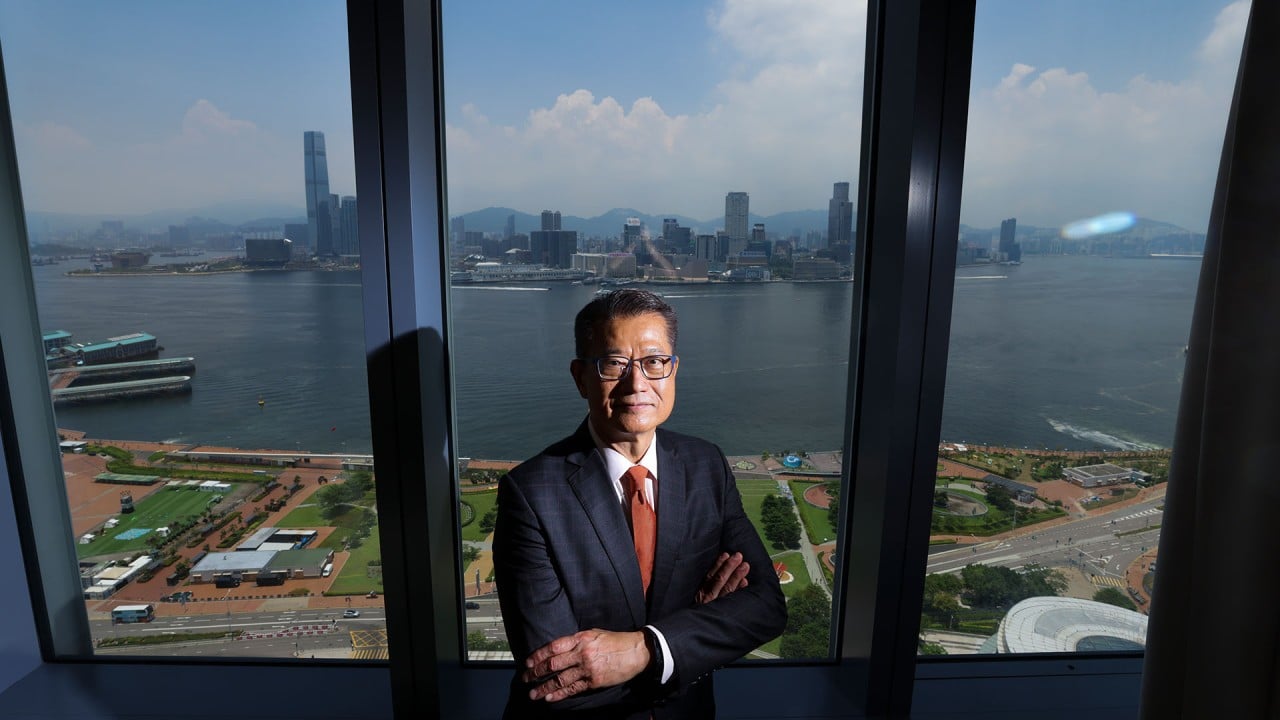
Hong Kong banks may raise prime rate as soon as this month as costly defence of US-dollar peg drives up cost of money, analysts say
- Six out of 10 analysts surveyed by the South China Morning Post believe the Hong Kong prime rate will increase by 12.5 to 25 basis points
- Most analysts surveyed expect a rate increase to come in September, but some predict a rise this month, as capital outflows continue

Most analysts predict Hong Kong’s commercial banks will raise the prime rate in September, but some expect a rate increase to come this month as a key indicator of bank liquidity continues to fall, according to a poll conducted by the South China Morning Post.
Six out of 10 analysts surveyed believe the prime rate will rise by between 12.5 and 25 basis points in September. One expects the same level of increase sometime in the fourth quarter. One respondent said the rate will not rise at all. At the other extreme, two analysts expect a 50-basis-point increase in August.
The most pessimistic analysts believe the prime-rate increase could come this month because the aggregate balance – the sum of balances in clearing accounts maintained by banks with the Hong Kong Monetary Authority (HKMA) – has now fallen below HK$150 billion.
That drop in bank liquidity comes after the HKMA bought HK$6.27 billion and sold US$799 million on Tuesday morning to support the peg after the Hong Kong dollar hit the weaker end of its trading range at HK$7.85 per US dollar, according to an HKMA statement. Those moves reduced the aggregate balance to HK$144.75 billion, compared with HK$337.53 billion before the first intervention this year, on May 11.

“The rapid decline of the aggregate balance shows a massive capital outflow from the Hong Kong dollar market,” said Jasper Lo, an independent currency analyst. “The banks need to increase the interest rate at a high level to match those in the US to stop carry trades and prevent outflow.”
More than half of the aggregate balance has drained away in less than three months, he said. “That is a very quick outflow, and it will add pressure on banks to increase their prime rate soon,” Lo added.
Lo believes the prime rate will go up a full percentage point to 6.25 per cent, which is bad news for mortgage borrowers. A customer with a HK$5 million loan with a 30-year term will have to pay HK$656 more each month following a 25-basis-point increase, and HK$1,324 more following a 75-basis-point increase, according to data from mReferral Corporation. Should the prime rate rise a full-percentage point, this homeowner would see monthly repayments increase by HK$2,004.
Other analysts, however, believe the rate rise will come later – or not at all.
Hong Kong banks might not raise prime rates in September, as Hong Kong dollar liquidity remains ample and credit growth remains weak, said Ju Wang, head of Greater China FX and rates strategy at BNP Paribas.
Banks last raised the prime rate in September 2018, when the aggregate balance dropped below HK$80 billion, she said.
“Banks have to compete hard for mortgage lending, and they may refrain from raising the prime rate so as to avoid losing market share,” Wang said.
The rate hike is always a stressful test, but it is not a game changer, said Ryan Lam Chun-wang, head of research with Shanghai Commercial Bank.
“Without public debt, and with two-thirds of homeowners living their lives in the absence of a mortgage, the impact of rate hike is mainly psychological, and hence manageable,” he said.
Hong Kong’s highly competitive market for retail banks explains why Hong Kong banks have not made any adjustments to their prime rates despite the Fed raising rates four times since March, said Iris Pang, Greater China chief economist at ING.
“Mortgages has traditionally been one of the most stable businesses for banks,” she said. “This is especially so now, as the retraction of the city’s economy means banks’ new mortgages business may not grow as fast [as during boom time].” Hong Kong slipped into a recession in the second quarter.
Banks will therefore be more mindful about any adjustments, and would only raise prime rates if further US rate hikes reach a point where the entire industry would begin to suffer from near-zero net interest margin. This may happen during the fourth quarter, she said.
ING expects US rates to peak at 3.75 per cent by the end of March 2023, before plateauing and possibly reversing to rate cuts in the second half.
The HKMA has stepped into the market 27 times this year, buying a total of HK$193.157 billion and selling US$24.6 billion, HKMA data showed.
The local currency has been pegged to the US dollar at HK$7.80 since 1983. The HKMA is obliged to keep the local dollar trading within a band of HK$7.75 to HK$7.85, and intervenes whenever the value veers out of that range.
The US Federal Reserve raised its key rate for the fourth time this year, lifting it to a target range of 2.25 per cent to 2.5 per cent, from 1.5 per cent to 1.75 per cent. The Fed has delivered two 75-basis point blows in as many months, raising the cost of money by the biggest one-time quantum since November 1994 in an effort to douse inflation.
The HKMA increased the base rate to 2.75 per cent, in lockstep with the US Fed. The interbank interest rate followed suit. However, HSBC and Bank of China (Hong Kong) kept their prime rate unchanged at 5 per cent, while Standard Chartered maintained its rate steady at 5.25 per cent.
